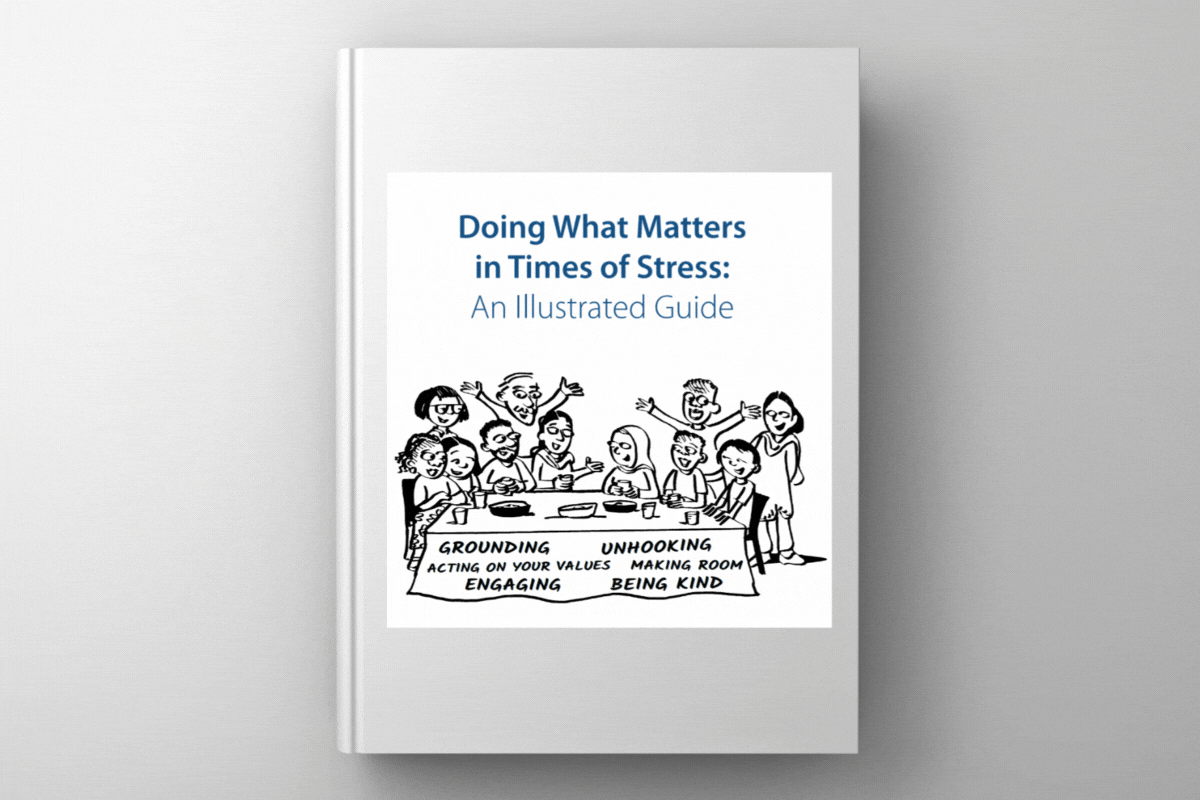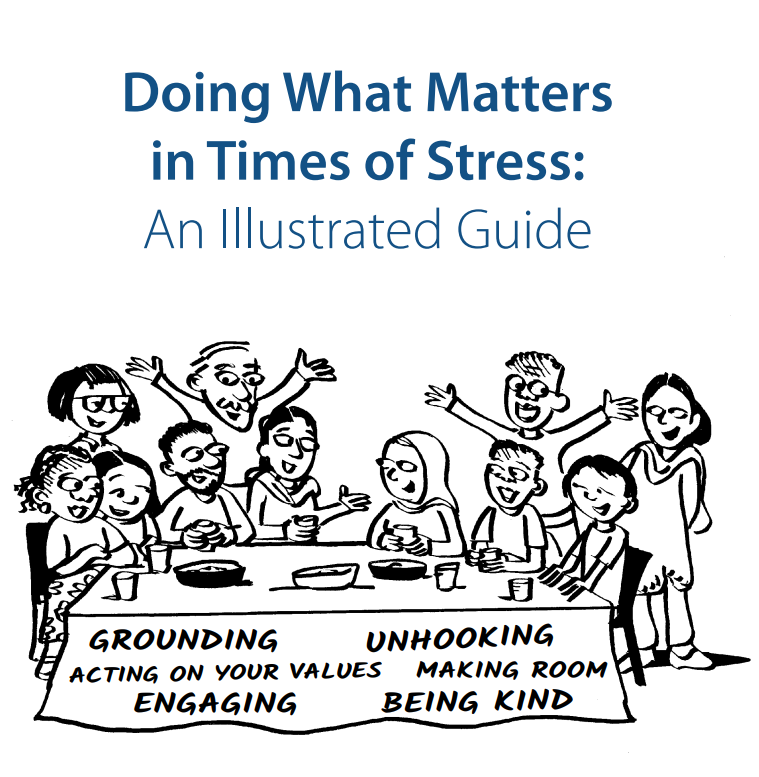
Finding good self-help materials written in multiple languages can be a challenge. This illustrated guide from the World Health Organisation on managing stress is available in 24 languages and is free. In it you’ll learn evidence-based stress management tools. Reading time (post) ~ 2 minutes. Reading time (guide) ~ 30 minutes +
I was reading a research paper yesterday that I didn’t understand. It literally gave me a headache.
But in that paper was a link to some international work done by the World Health Organisation to create an illustrated stress management guide that resonated across cultures.
The guide is available in 24 languages, is free, and provides some really actionable and evidence-based stress management strategies: grounding, values, kindness, acceptance, defusion – just to name a few.
The guide is based on concepts from Acceptance and Commitment Therapy and was written by one of the best trainers in the field, Russ Harris. Details on the people who put it all together can be found in the guide.
The preface of the book captures nicely the goal:
Doing What Matters in Times of Stress is a WHO stress management guide for coping with adversity. This illustrated guide supports implementation of WHO’s recommendation for stress management.
There are many causes of stress, including personal difficulties (e.g. conflict with loved ones, being alone, lack of income, worries about the future), problems at work (e.g. conflict with colleagues, an extremely demanding or insecure job) or major threats in your community (e.g. violence, disease, lack of economic opportunity).
This guide is for anyone who experiences stress, ranging from parents and other carers to health professionals working in dangerous situations. It is for both people who flee war, losing all they have, and well protected people living in communities at peace. Anyone living anywhere can experience high levels of stress.
Informed by available evidence and extensive field testing, the guide provides information and practical skills to help people cope with adversity. While the causes of adversity must be addressed, there is also a need to support people’s mental health.
I hope that you will find this WHO guide useful, and that it helps all readers in their efforts to cope with stress.
Dévora Kestel
Director
Department of Mental Health and Substance Use
World Health Organization
Grab a version in your preferred language and see whether there are some tools in there you can use in your own life.


